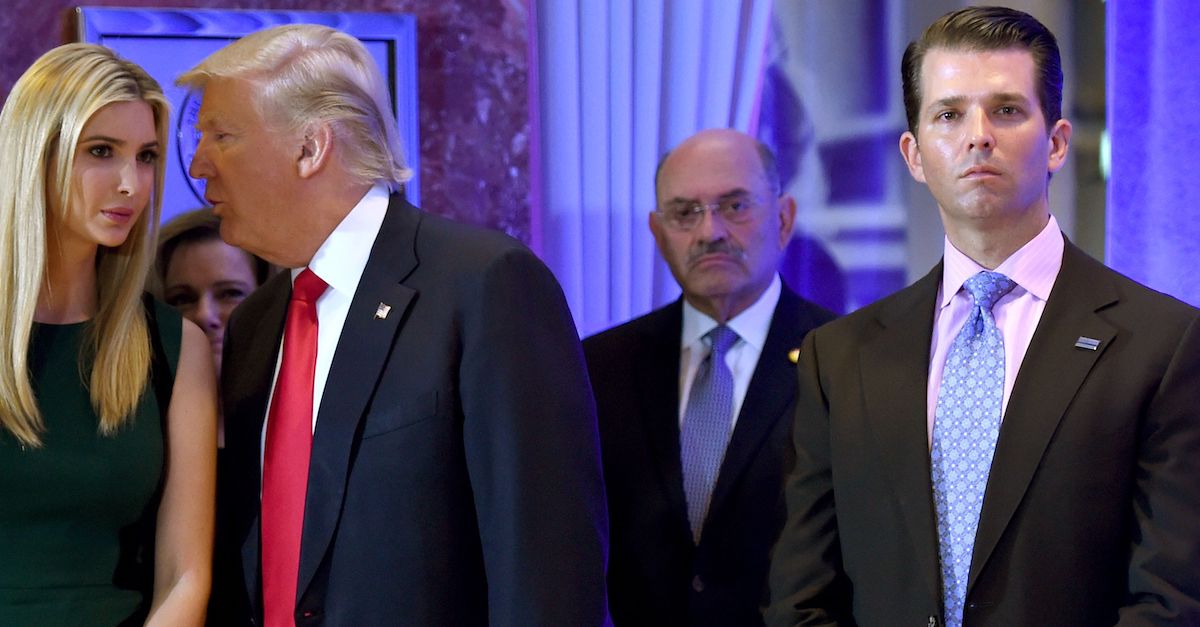
It appears to be no wonder why longtime Trump Organization CFO Allen Weisselberg jumped at the chance to get an immunity deal in the Southern District of New York (SDNY), where ex-Trump lawyer Michael Cohen was being investigated for tax evasion, bank fraud and campaign finance violations.
Cohen, mere days before he is scheduled to begin his prison stint at the so-called “Castle Behind Bars” in Otisville, N.Y., tells Jeffrey Toobin of the New Yorker in a wide-ranging piece that Weisselberg was involved in the Stormy Daniels hush payment discussion from the get-go, and actually came up with a “hundred different ways” to make it happen.
Per the New Yorker:
Cohen stepped into the Stormy Daniels story in September, 2016, just weeks before Election Day. Daniels’s attorney was demanding that Trump himself pay to suppress her account of a one-night stand with him, which took place in 2006, shortly after his wife, Melania, gave birth to the couple’s son. Cohen took charge of the negotiations, protecting Trump from making a direct payment to Daniels. Cohen told me that he worked through a series of possible scenarios with Weisselberg. “He was involved right from the very beginning,” Cohen said. “I wanted Allen to pay the money—I didn’t want to take it from my account. He wanted me to find somebody who wanted to become a member of a golf club or was going to have a party at one of the functions and they could take the hundred and thirty off of the bill that way and then they could pay me—I mean, he came up with a hundred different ideas.” (Weisselberg, through his attorney, declined to comment.)
Note that one of those apparent ideas was using golf club memberships and parties to hide the money.
“The amount of money that they were going to pay back was created by [Weisselberg]. How they were going to pay me the money back was created by [Weisselberg]. And then the two of us went, as we did throughout the entire process, to Trump’s office, and he approved it,” Cohen said.
In the end, Cohen was the one who facilitated the payment and he admitted in an SDNY courtroom that Trump “directed” him to so. For this and other offenses, Cohen was sentenced to three years in prison, while Weisselberg has remained a largely invisible figure — despite congressional interest in having him testify posthaste.
Weisselberg has worked for the Trump family the past 40 years.
Later on in the Toobin story is a possible explanation for why Weisselberg and AMI CEO David Pecker were granted immunity as part of the SDNY investigation into the Daniels and Karen McDougal hush payments. Donald Trump Jr., whose signature was on a hush payment check, also came up:
The Southern District prosecutors declined to comment, but one can speculate about why they gave passes to Pecker, Weisselberg, Don, Jr., and the President. The prosecutors were clearly trying to pressure Cohen into coöperating, and they needed a witness who could tie him to a scheme to make illegal campaign contributions. Pecker fit that bill, so the prosecutors were willing to give him immunity. Weisselberg had much to offer prosecutors about the full range of the President’s financial life, so they may have wanted to avoid charging him, too. Don, Jr.,’s role may have been too minor to merit prosecution.
[Image via Timothy A. Clary/AFP/Getty Images]